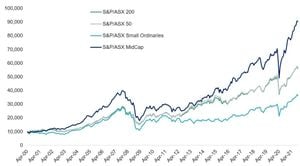A federal judge has taken significant action to protect student loan borrowers' personal information by blocking staff affiliated with the Department of Government Efficiency (DOGE) from accessing sensitive data until March 10, 2024. This ruling came from U.S. District Judge Deborah Boardman, who issued the temporary restraining order amid concerns over how DOGE staffers would handle sensitive information during their audit processes.
The lawsuit, led by the American Federation of Teachers (AFT) along with several other unions and veteran groups, argued against the Education Department's decision to share personal data with DOGE, emphasizing it violates the Privacy Act. This act limits federal agencies from sharing personal information, mandatorily protecting the privacy of individuals.
Judge Boardman's ruling is particularly noteworthy as it marks the first judicial glance at DOGE's overarching effort to cut federal government spending, which has raised eyebrows due to its aggressive oversight measures. The order stipulates the immediate cessation of information sharing between the Education Department, the U.S. Office of Personnel Management, and DOGE staffers, ensuring sensitive data is protected until the specified date.
Randi Weingarten, the AFT president, expressed approval of the ruling, stating, "When people give their financial and other personal information to the federal government — namely to secure financial aid for their kids to go to college, or to get a student loan — they expect the data to be protected and used for the reasons it was intended." This sentiment echoes the current public anxiety about how personal data is being handled within various governmental frameworks.
The case began when DOGE officials were reported to be analyzing the Education Department's systems for what they described as attempts to identify fraud, waste, and abuse within federal student loan programs. Adam Ramada, one of the DOGE staffers, confirmed their engagement with the Education Department's data to find these inefficiencies, but the judge pointed out the lack of necessity argument presented by the government.
Boardman remarked, referring to the government's explanation, "It may be... the government can explain why granting such broad access to the plaintiffs’ personal information is necessary for DOGE affiliates at Education to do their jobs, but for now, the record before the Court indicates they do not have a need for these records in the performance of their duties." This statement directly counters DOGE’s assertions, highlighting the judicial skepticism surrounding the agency's operations.
The temporary restraining order is not the only recent legal action surrounding DOGE's data access efforts. Interestingly, just last week another federal judge denied a separate request from the University of California Student Association, which sought to stop DOGE from accessing student records, citing insufficient evidence of harm to their members.
This juxtaposition reflects the tension within legal landscapes as various groups attempt to protect individual rights amid government spending cuts and oversight initiatives. AFT’s Weingarten noted the importance of the decision: "This is a significant decision... which lack legitimacy and authority to access Americans’ personal data and who are using it improperly, without any safeguards."
Although there's potential for DOGE to appeal this decision or provide the necessary justification to access personal data moving forward, for now, the ruling serves as a strong statement on the safeguarding of personal information, particularly for individuals who have to share vast amounts of sensitive information just to secure student loans.
With six DOGE affiliates currently stationed at the Education Department, there is still much to watch as the situation evolves. Advocates for student privacy are applauding this legal win as it sets up necessary checks against perceived overreach from governance structures amid heightened scrutiny over data privacy and protections.
The ramifications of Judge Boardman’s order may extend beyond this immediate situation, potentially influencing how future access to sensitive data is granted—or denied—across government departments. With the court explicitly recognizing the importance of protecting personal information under the Privacy Act, it will continue to be imperative for agencies to carefully weigh the necessity of data access against individuals' rights to privacy.



